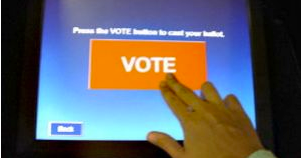Blog post by David Swedelson, Condo Lawyer and HOA Attorney, Senior Partner at SwedelsonGottlieb
 CAI’s California Legislative Action Committee announced this week that it is sponsoring a bill that was introduced into the California Assembly, authored by assembly member Norma Torres, that would make electronic balloting or voting an option for California’s common interest developments. It is about time.
CAI’s California Legislative Action Committee announced this week that it is sponsoring a bill that was introduced into the California Assembly, authored by assembly member Norma Torres, that would make electronic balloting or voting an option for California’s common interest developments. It is about time.
As most of you know (and I say “most” because I’m still seeing associations that are not aware of the 2006 change in the law that requires secret balloting and other changes to how HOA elections are handled — follow this link for our prior post that addresses these changes), the law requires that California community associations follow a secret balloting process with double envelopes, etc. for specific kinds of elections.
AB1360, the bill introduced by Assembly Member Torres, would permit the use of electronic voting, which would take advantage of existing technology and presumably reduce the cost of the election process for most community associations. Some actually believe that being allowed to vote electronically would increase the number of owners that actually participate in their associations’ elections, as many community associations are having a difficult time achieving quorum.
Electronic voting at community associations is not that unusual, as it is already permitted by law in Nevada, Texas, Washington, and New Jersey. I did a little checking and found nothing that would indicate that community associations in these states are having a problem with the electronic voting process.
Considering the fact that an estimated 75% of the citizens in this country have Internet access, and further, considering the fact that we live in a high-tech Internet age, and that there are many electronic balloting voting systems available, this does seem like legislation that could be beneficial to California community associations.
For now, online electronic voting must be an option, rather than required, as there still may be individuals who do not have access to the Internet. According to CLAC, “AB1360 will, if enacted, help save money, conserve resources, and make it easier for citizens to participate in the governance of their communities.”
We will watch this bill and keep you advised of any changes or developments. Comments?
David Swedelson is a community association legal expert; he can be contacted via email: dcs@sghoalaw.com
 HOA Law Blog
HOA Law Blog


